How to Manage Project Deadlines Like a Pro
Deadlines are extremely important management pacesetters in any field. They aid in motivating and implementing good practices toward the proper completion of projects. Also, they create a wide ground for conversations among team members towards finishing a task before the end date.
So, the ability to meet deadlines is a criterion for getting and maintaining any job. It even pops out in interview questions.
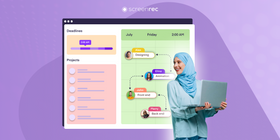
What is the issue with deadlines?
Research has shown that 37% of project failures are due to a lack of clear goals and 41% of organizations report poor project management. That's why Project Managers:
- decide the goals,
- delegate work, and
- schedule strategic timelines for each specific task and project.
However, the worst problem often faced by project managers has always been time management. Lack of time management leads to:
- unclear goals,
- obscure proposed tasks, and
- improper communication, and even
- procrastination.
Each of these problems, whether collectively or singularly, leads to project mismanagement.
Indeed, humans are scientifically wired to avoid tasks that create negative feelings and anxiety. But, on another hand, this indifference is oftentimes caused by our inability to be accountable. Or, at least, find a way to make our varied projects a top-level priority.
Truth be told, the goal of every good project manager is completion. If that's so, how can a project manager strategically achieve that in a particularly busy world of multiple projects and always-looming deadlines?
How To Manage Multiple Projects and Deadlines
1. Start Your Day On Time

It is imperative that you start your day early with a fresh and energetic mindset. Yes, you can have some wiggle room for extra traffic or a long queue at the cafe, but never be late to the office.
Most employees spend the start of their day on social media platforms, making coffee, and binge-watching movies. To be more productive, try to reach the office before the starting bell rings. This allows you ample time to check your email, prepare your mind for the day's work, and be ready.
Helpful app
A nice tool to help with that is Alarmy. It is the highest-rated alarm clock for many reasons. The most important being that it does not only set an alarm but also sets a mission. To stop the alarm, you have to complete the mission. From taking a picture to shaking the phone 1000 times to wake your body up to walking 20 steps to solving a math question to kickstart your brain.
The alarm is incredibly loud; so any heavy sleeper or night owl cannot forgo its headbanging, persistent calls.
2. Create A Realistic Schedule
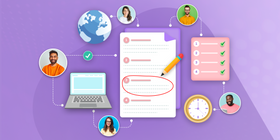
To-do lists are always a good idea. They help get your thoughts on paper for proper visualization.
Write all the tasks you want to do, be they long-term, or medium-term, or short-term, and identify their due dates. Once you have done that, pinpoint the tasks that are indelibly important and prioritize accordingly. Keep it realistic. Do not compile too many actions for a day.
Give yourself enough time for your mental energy to switch from one task to another thereby keeping your mind evenly stimulated. Tackle the easy ones first, it gives a boost of confidence to have finished a task.
It is good to update the list at the end of the day, crossing out items that have been completed.
Helpful app
A great tool for to-do lists is Trello. It lets you easily manage your projects and to-do lists visually. And it is absolutely free. You can have different boards for different projects, with their tasks and time frame. That way you have visual project deadline management.
3. Block Distractions

We often miss deadlines because of distractions and frequent procrastination. Being proactive is a major key to meeting deadlines.
When you are working on a project, it's good to find out the cause of your distractions and, simultaneously or subsequently, get rid of them. Although, we have to mention, the bulk of distractions faced by most people are from their phones. They have the power to take our minds off work at any moment.
Helpful app
Forest App is a popular productivity app for helping people with their phone addiction. When you want to focus, you “plant” a tree. While you focus on your work, from start to finish, the tree grows.
If you open your phone and exit the app to do something else, your tree starts to die. You earn coins when your tree grows. With those coins, you can plant real trees (Forest partners with real-world tree-planting organizations)!
4. Communicate Swiftly
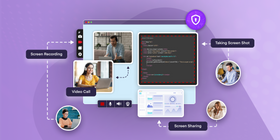
As a project manager, it is essential to make sure your meetings are productive and timely. Team members should communicate with each other every day with updates and tasks. This is to get proper information on the progress of the proposed project.
These updates and quick communication skills help to spot any oversights or problems beforehand. Otherwise, you might spend minutes, even hours, writing emails that will not yield any positive results. Communication is one of the most important task dependencies.
Helpful app
The best tool for efficient communication is ScreenRec. It is easy to use, navigate, and 100% secure. You can screen record, screen share, video call, and screenshot instead of typing long emails and notes. It creates a visual conversation between you and your teammates. Best of all, the videos and screenshots you create are saved in a private online library for easy reference.
5. Do Not Multitask!

Keep the workload manageable. Project Managers have to be responsible for that. Don't try to engage in multiple tasks at the same time; they will overwhelm you and affect your relative workforce. If you have a specific rhythm, try following it every day.
When multitasking, you only add multiple tasks to your to-do list and never achieve true satisfaction with the work done. This is because you cannot give your full attention to each task. It is a complete time-waster! If you have many things to do, you can begin with the priority tasks.
Helpful app
An online Pomodoro timer is an easy and customizable tool that will help avoid multitasking. It uses a time management technique that breaks down work into set intervals with 5-minute breaks between them.
Each timer is 25 minutes by default. This is the perfect stretch of time
before you begin to get distracted or feel the urge to procrastinate. It is an efficient work breakdown structure.
How To Handle Missed Deadlines
Below are a number of things you can do when you miss a deadline:
- Apologize first and foremost. It’s okay. It happens. Everyone has missed deadlines once or twice. Life comes in the way. Just clear the fog and apologize.
- If possible, tell them beforehand that you won’t be able to meet the deadline. Don’t try to overwork yourself and cram stuff to get the job done.
- Ask for extensions. A good project manager will always make room for errors. They know deadlines might get missed and they plan accordingly.
- Ask for help. Always keep open communication. Give updates to the team. Ask for help from someone whose workload might be light for the week.
- Use this lesson and prepare for next time. Having known your mistakes, you can now easily work towards eradicating them. You learn how to handle deadlines in the future.
- Learn how to prioritize tasks. Clarify which tasks are important and which need urgent attention. Prioritize using that knowledge.
Recap
Project Deadline Tip | Best Tool | What it does |
Start your day on time | Create collaborative alarms. Set up a mission for the morning. Can be walking 20 steps, taking a picture, or solving a math problem. | |
Create a realistic schedule | Manage project tasks visually. Each project has a board and to-do lists for the day. | |
Block distractions | To avoid distractions, you plant a tree. If you keep focusing, the tree grows. If you use your phone and leave the app, the tree dies. If your trees grow, you earn virtual coins to plant real trees! | |
Communicate swiftly | Communicate visually with screen and webcam recordings, and annotated screenshots. | |
Do not multitask! | Set 25 mins tasks with 5 mins breaks. This time management technique is very comfortable and productive. 25 mins is the perfect stretch of time before you begin to get distracted. |
FAQ
Prioritize which project task is extremely urgent, important, and time-sensitive. Keep a list of the tasks accordingly and start working. Ask for help or deadline extension on tasks that do not fall in any of those categories, if possible. Create project timelines to help you. You can employ the use of project timeline software as well.
Do not overload your team with work assignments. It will affect their workforce and frazzle them. Give them realistic tasks and deadlines. Map out room for tasks with deadlines that have not been met.
Hold meetings and send updates every day with tools like ScreenRec to have quick visual communication. You can also use project management tools, through which you can track the project and team’s progress. That way you have a clear track on your team.
Prioritize overlapping and competing deadlines. Use project management software to plan and schedule the team’s tasks and keep track of them. Create a project management timeline if you're working on multiple projects. This enables you to view their progress and each of their deadlines. It helps to look at your deadlines visually and manage timelines easily.
Conclusion
Whether you're a project manager or an individual contributor, effective deadline management is a skill that will set you apart and lead to increased productivity and success. Prioritization, avoiding multitasking, and efficient communication are essential practices. Embrace these tips, and you'll be on your way to becoming a pro at meeting project deadlines. This is a great step to elevating your career and making your projects a success!

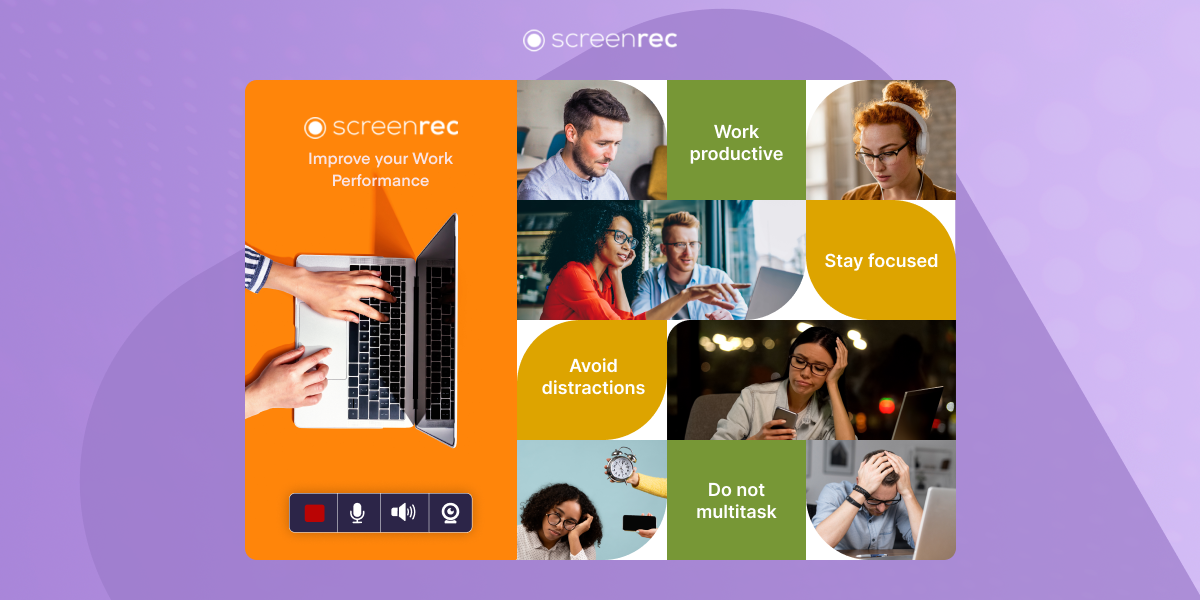
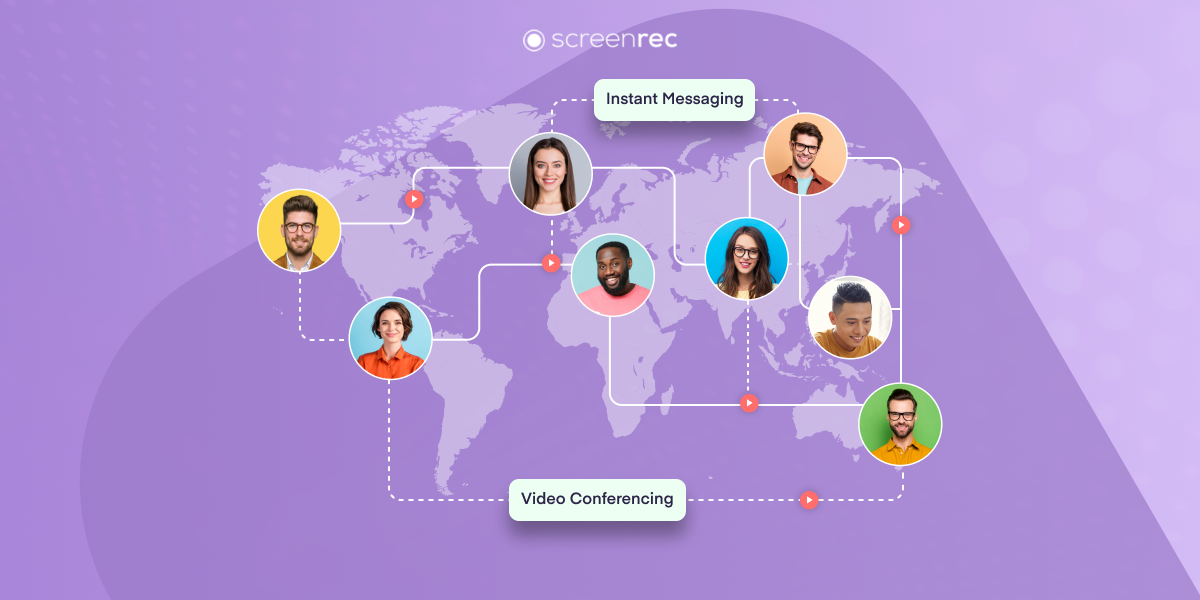

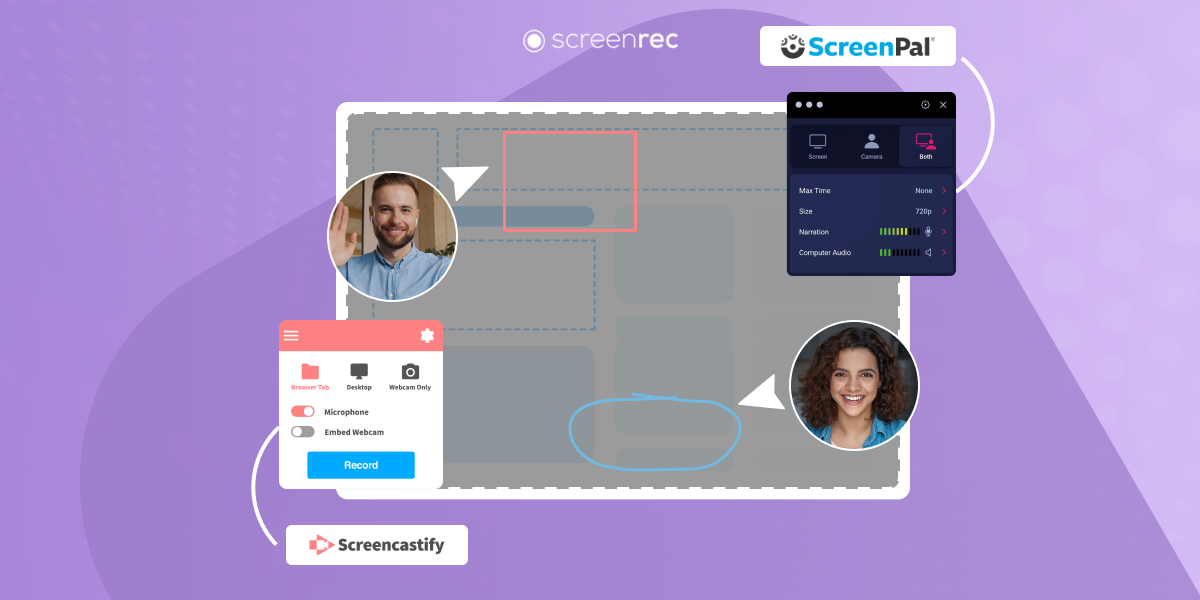
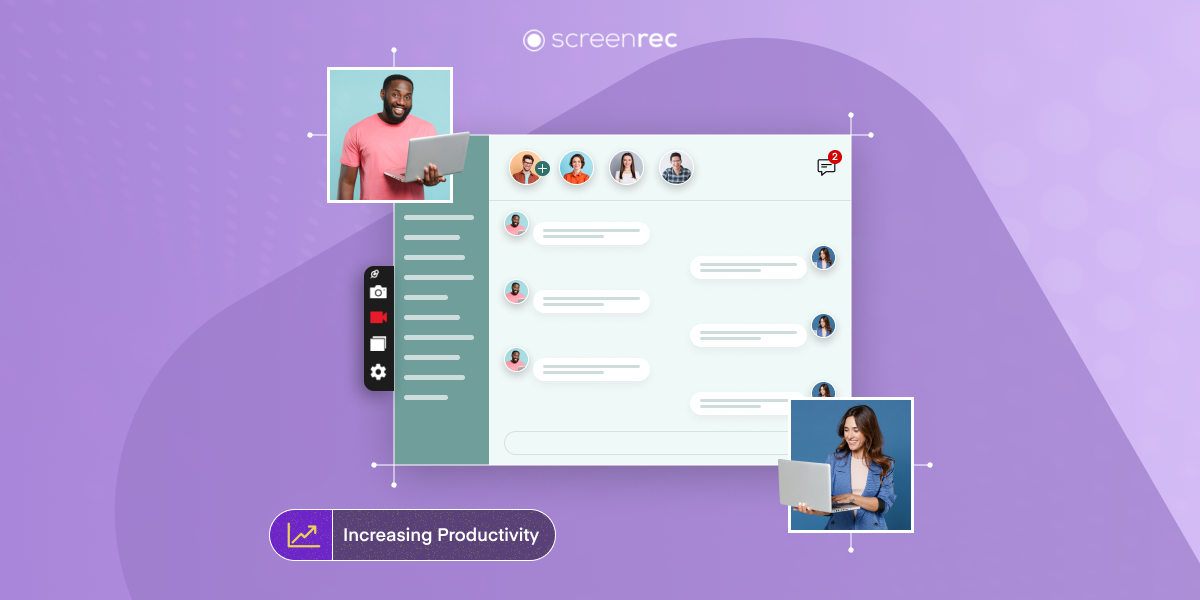

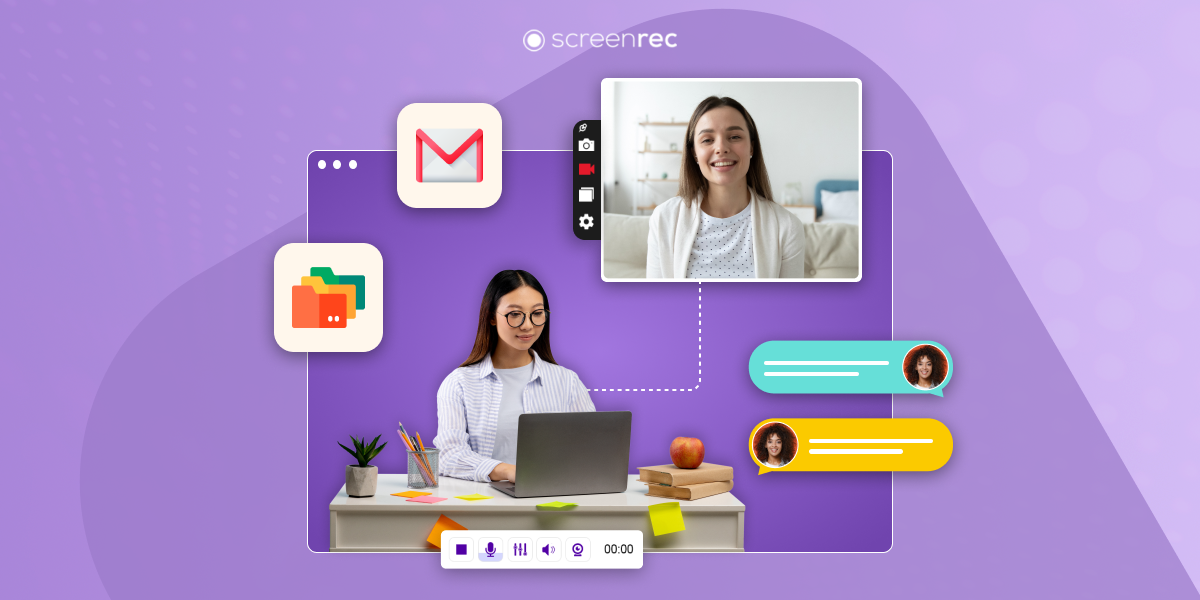


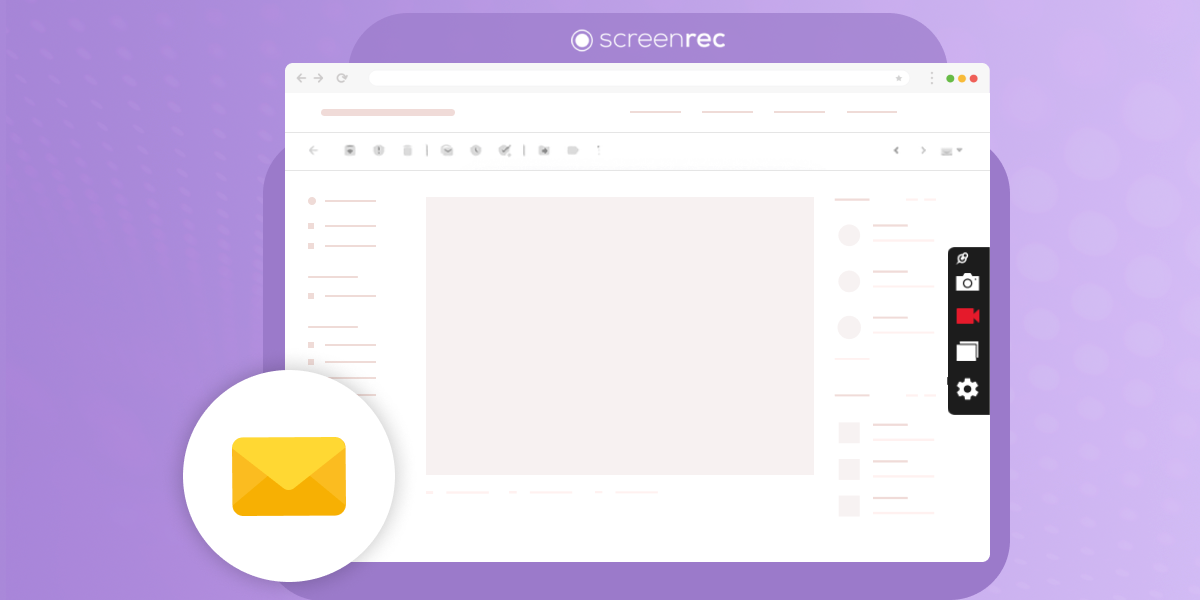
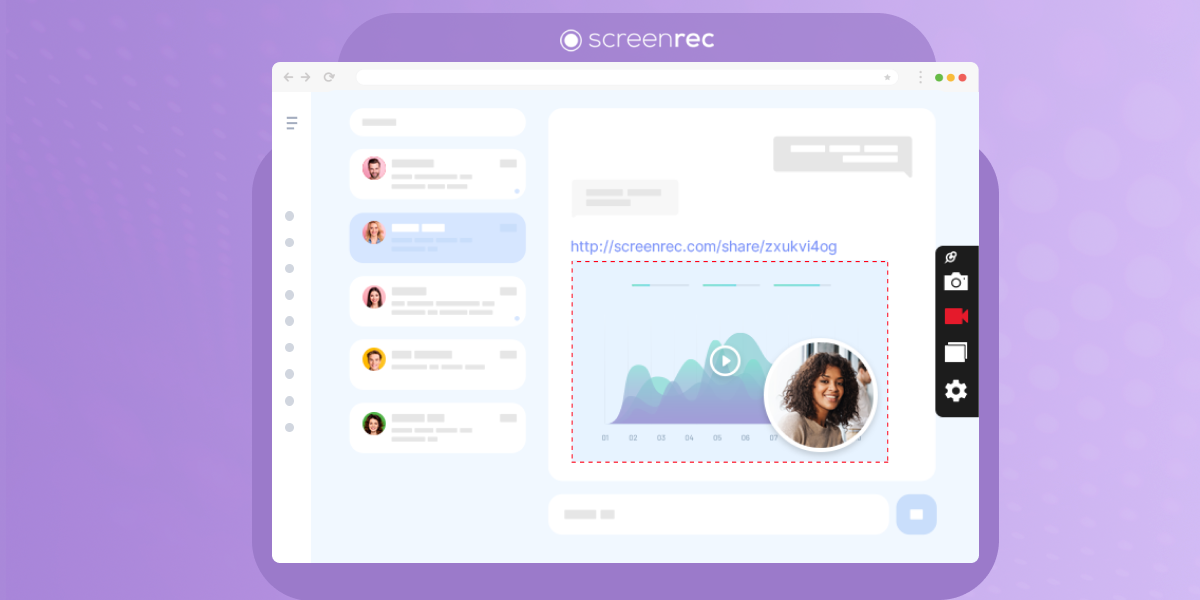
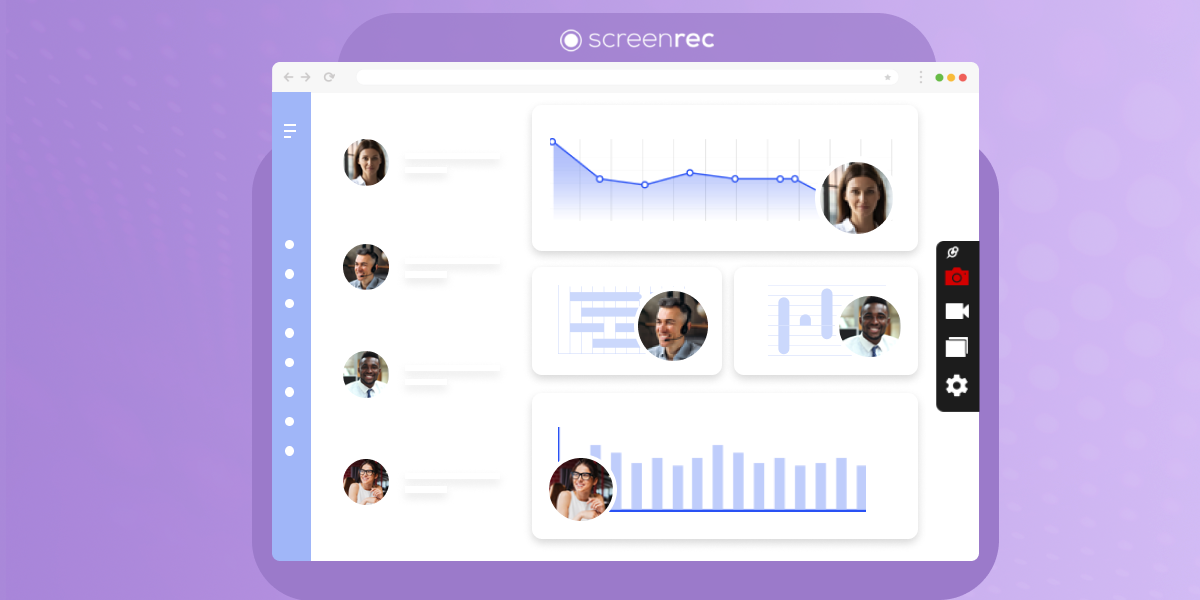
![[Guide] Effective Communication In The Workplace](https://screenrec.com/assets_dist/screenrec/media/communication-workplace/communication-in-the-workplace.jpg)
DON’T MISS OUT
Get updates on new articles, webinars and other opportunities: